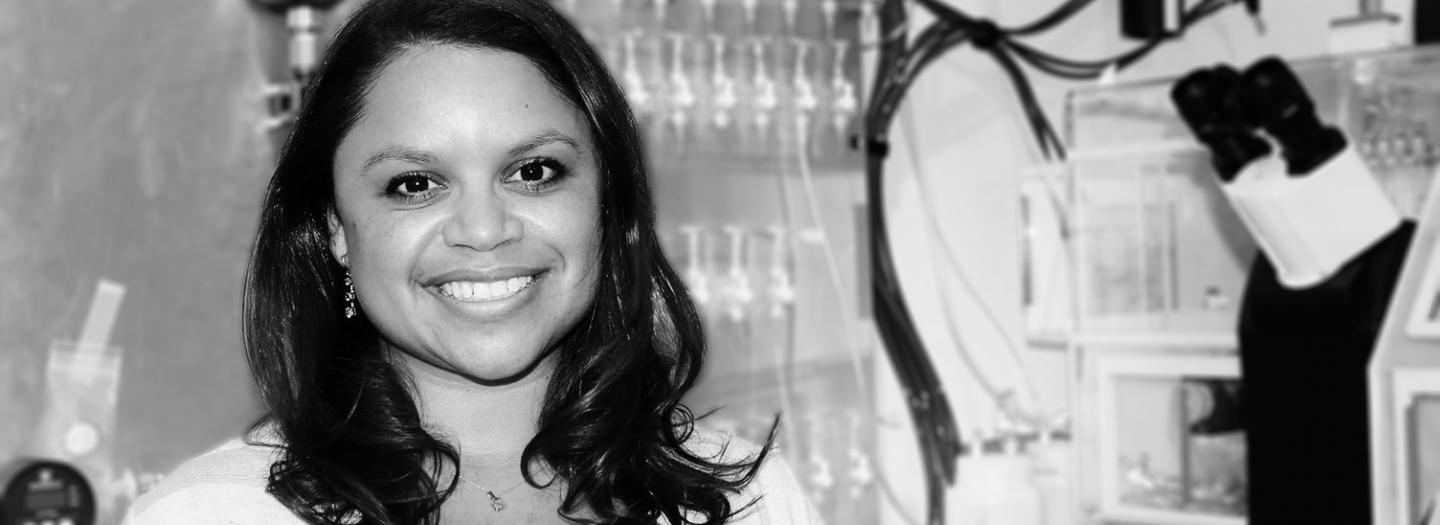Gabriela C. Monsalve, PhD, Postdoc Alum : Advocating for UCSF Postdocs
Gabriela C. Monsalve is assistant dean for postdoctoral scholars at UCSF.

She oversees the development and execution of strategic initiatives, programming, and policies aimed at improving the postdoctoral experience at UCSF. She also liaises with various regional, national, and international organizations on behalf of UCSF postdocs.
Dr. Monsalve earned her PhD in biological chemistry from UCLA, and support for her research came from the Damon Runyon Cancer Foundation, the University of California Office of the President, the National Science Foundation, and the National Academy of Sciences Ford Foundation.
Sara Ayazi, a former career counselor and program manager in UCSF's Office of Career and Professional Development (OCPD), spoke with Dr. Monsalve about her career path.
Tell us about your path from postdoc to assistant dean.
I chose to do my postdoc at UCSF for a number of reasons. The lab environment and scientific community at UCSF are the absolute best of the best, I had the opportunity to develop my own independent research program, and my postdoctoral adviser and UCSF have well-deserved reputations for launching people into a variety of meaningful careers. However, within a week of my arrival at UCSF, I knew I wanted to make a career here beyond my training.
Early in my postdoc, I prioritized a career as a tenure-track faculty member, but I thought it made sense to also spend some time exploring additional academic career trajectories that incorporated innovation and scholarship. To that end, I attended various workshops hosted by the OCPD and sought out resources provided by the Office for Postdoctoral Scholars (OPS). It was through these interactions with OCPD and OPS that I was asked if I would like to volunteer to support a new career-exploration program – known as Motivating INformed Decisions (MIND) – and I jumped at the opportunity.
In the MIND program, I researched a career trajectory that would allow me to contribute to academia in a different way – as a university administrator. I quickly realized that I enjoyed the work; it combined research and innovation, my colleagues were fantastic, and many of the day-to-day tasks aligned well with my skill set and values. Importantly, I discovered a new wave of PhD-trained, non-tenured scientists who are changing the international landscape of higher education, and contributing to that cultural shift in academia appealed to me.
Soon after this discovery, I was invited to apply for an open position to direct the MIND program. I must emphasize that it was a difficult decision to leave my postdoc; all of my research projects were yielding promising results, my research was fully funded, I had a very supportive postdoctoral adviser, and I worked with a remarkable group of colleagues. However, the chance to contribute to a shift in how we discuss career diversity for PhD-trained life scientists – both at UCSF and at the national level – was too much of an incredible opportunity to pass up. During my time as the program director in OCPD, I was fortunate to actively promote and support the process of helping students, postdocs, staff, and faculty members make informed career decisions.
I see my current role as assistant dean for postdocs as an extension of my previous work, expanding to incorporate other campus partners to support the career, research, administrative, and community needs of our postdocs. The best part of my job is seeing the successful outcomes of our UCSF alumni, both from the data of what our scholars do after their training and through their personal success stories.
What was the best advice you were given while you were a postdoc at UCSF?
I received two powerful pieces of professional advice that ultimately shaped my experiences thus far at UCSF: one during my first week as a postdoc and the other about a month before I left. Both were from former UCSF postdocs who went on to distinguished careers in academia.
The first piece of advice? Take advantage of every networking and professional-development opportunity because serendipity is a real thing! Time and time again, the majority of people – myself included – find their next steps through word-of-mouth and by having right advocates by your side at the right time. Build and cultivate your network as much as you can!
The second piece of advice? Just because you know how to do something really well does not mean you need to continue doing it forever. In other words, whatever you do after your training, make sure that it is an informed and a strategic choice, rather than a default action. I was told that I could be successful if I continued down the traditional faculty path, so for the longest time I believed that meant that I should pursue it, especially given how coveted and elusive those positions are. Reframing how I viewed my scientific training – so it could be used to choose from a variety of different career paths that actually better aligned with my values, rather than restricting myself to a single choice – freed me to view my career path holistically, rather than by specific benchmarks on an established timeline.
Interview conducted by Sara Ayazi, a former career counselor and program manager with the UCSF Office of Career and Professional Development.